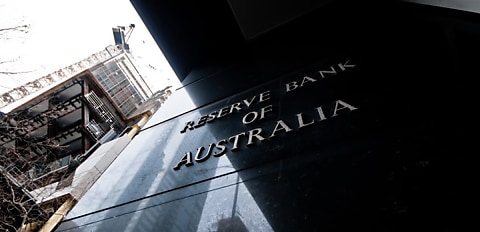In the lead-up to the Reserve Bank of Australia’s (RBA) July monetary policy meeting, economists and banks alike have weighed in with their forecasts on what the central bank will decide following the Australian Bureau of Statistics’ (ABS) latest inflation report.
Despite inflation in May 2023 rising by 5.6 per cent (a notable decrease from April’s 6.3 per cent and below the market’s anticipated rise of 6.1 per cent), the majority of the major banks still believe the RBA will move to hike the official cash rate by a further 25 bps, taking the cash rate to 4.35 per cent.
ANZ, NAB, and Westpac adjusted their cash rate forecasts in the weeks succeeding the June cash rate decision and are still holding firm that the RBA will lift the cash rate today (4 July).
Brian Martin and Daniel Hynes from ANZ Research confirmed that the bank believes the RBA will be “unlikely to pause”.
“We don’t think the RBA will be swayed to pause by last month’s inflation result,” ANZ’s research team confirmed.
“May’s monthly consumer price index (CPI) showed inflation slowing but CPI excluding volatile items barely decreased and was a key measure in the RBA board’s June meeting minutes.
“Given the last two decisions were described by the board as ‘finely balanced’, there is a chance the monthly CPI data could shift the RBA to pause in July.”
Westpac chief economist Bill Evans stated: “With core inflation holding above 6 per cent; the unemployment rate holding nearly 1 ppt below the NAIRU (RBA’s estimate) and the cash rate only around 1 ppt into contractionary territory (we see neutral around 3 per cent), the cash rate will need to go higher.”
Mr Evans continued, stating that a second pause to gather information “seems unnecessary” and “only risks the need for the cycle to extend even further into 2023 when the prospects for damage to the economy increase substantially”.
The Commonwealth Bank of Australia (CBA) stands as an outlier in this case, believing that the RBA will hold the cash rate at 4.1 per cent on the back of the release of the latest inflation figures.
CBA economist Stephen Wu stated there is an “increased chance” of a rate hold, however, he acknowledged that the risks of a July rate hike “are not zero” due to the parts of the CPI focused on rents and market services that revealed some signs of inflation “accelerating or remaining elevated”.
Speaking to Mortgage Business, AMP economist Diana Mousina stated that the decision will “likely be a close call”.
“Ultimately, we think that the Reserve Bank will decide to increase the cash rate again by 0.25 per cent,” Ms Mousina stated.
“The main reason for that is because the Reserve Bank has become more concerned about the inflation outlook in Australia after the minimum wage decision.”
Ms Mousina added that the RBA is worried that the inflation data is not slowing quickly enough in Australia.
“It’s looking at the experience overseas and saying that inflation took a while to slow down and Australia lagged behind the rest of the world. So, our rate of inflation peaked later and they’re worried that it’s not falling fast enough,” Ms Mousina said.
CreditorWatch chief economist Anneke Thompson said the incoming data in June was mixed, “with business and consumer sentiment falling, but retail trade and the labour force still not weakening to the extent that the RBA would like them to”.
“Still, anecdotal evidence suggests that those households with a home loan or that are renting are feeling significant financial strain and that monetary policy impacts are definitely working their way through the economy,” Ms Thompson said.
Ms Thompson added that there is strong evidence from retailers that consumer spending has “slowed significantly”, with the central bank possibly considering that its previous 12 rate hikes are heavily impacting leveraged households.
“On balance, it is likely that the RBA may wait one more month to get a better feel for consumer spending trends and to also see if the labour force starts to show weakness as the new financial year starts,” she said.
[RELATED: Inflation falls, but is it enough to hold rates? Economists ask]

